Have you ever watched your cat leap three feet in the air at the sound of a sneeze? Or seen them vanish like a ghost under the bed at the tiniest thud? Cats, with their mysterious eyes and regal poise, can sometimes turn into bundles of nerves over the most surprising things. If you’ve ever wondered what makes your feline friend’s fur stand on end—and, more importantly, how you can help them feel safe again—you’re in the right place. Let’s dive into the secret world of feline fears and discover how to bring peace back to your whiskered companion.
Loud Noises: Thunderstorms, Fireworks, and Vacuums
Sudden loud sounds are a cat’s worst nightmare. Thunderstorms can send your kitty scrambling under the couch, and fireworks might leave them trembling in the closet. Even everyday noises, like the roar of a vacuum cleaner, can make them bolt from the room. Cats’ ears are much more sensitive than ours, so what’s just a loud noise to us feels like a booming explosion to them. When a thunderstorm rolls in or a neighbor sets off fireworks, your cat might startle, hiss, or hide. If you own a vacuum, you’ve probably noticed your furry friend disappears the moment you plug it in. These sounds represent unpredictable threats in your cat’s mind, triggering their instinct to flee and find safety. It’s not just the volume but also the randomness of the sound that sets them off. You might find it funny, but for your cat, it’s a matter of survival.
Strangers and Unfamiliar Guests
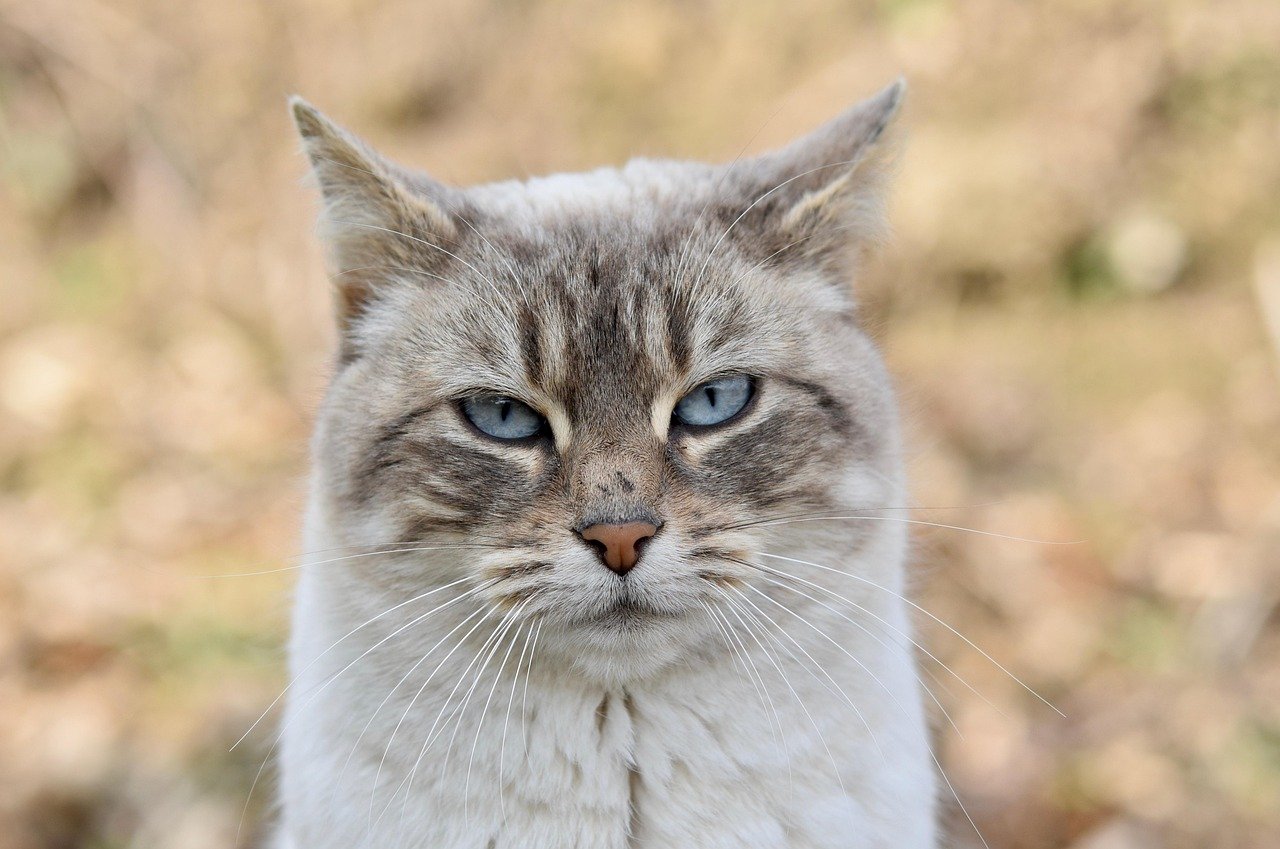
Cats are creatures of routine, and a stranger in the house can throw their world into chaos. Whether it’s a friend dropping by or a repair person tinkering in the kitchen, your cat may see any new human as a potential threat. Some cats react by freezing, others by darting away and hiding in the most impossible places. The scent of unfamiliar people can make cats uneasy, and the unpredictable movements of visitors only add to their tension. It’s not uncommon for even the friendliest cats to become shy or even hiss when confronted with someone new. If you’ve ever hosted a party, you might have noticed your cat only comes out after everyone’s gone, as if to check if the coast is finally clear. To a cat, strangers mean uncertainty, and uncertainty is scary business.
Loud or Unfamiliar Household Appliances
It’s not just vacuums—blenders, hairdryers, and even the coffee grinder can make your kitty’s heart race. Appliances that make sudden, unpredictable noises can be especially scary for cats. Their sharp ears pick up on every whir, beep, and buzz, and because they can’t understand what’s causing the commotion, they assume the worst. A simple morning smoothie can turn into a daily ordeal for your feline. The unpredictability of these noises means your cat never knows when the next “attack” will come. Sometimes, a cat’s fear can even be associated with a specific room—the kitchen becomes off-limits whenever the blender is on the counter. Their reactions can range from wide-eyed stares to full-on panic sprints. You might think they’ll get used to it, but for many cats, the fear never quite goes away.
Other Animals in the House

Bringing a new pet into your home can be a huge shock to your resident cat. Whether it’s a dog, another cat, or even a caged animal, your cat might see the newcomer as a threat to their territory. The scent, sounds, and movements of other animals can make cats uneasy or even aggressive. They may hiss, arch their backs, or hide for days. Sometimes the fear turns into a standoff, with your cat refusing to come out of their hiding spot until the coast is clear. In multi-pet households, it’s common for cats to carve out their own spaces and avoid the chaos altogether. The adjustment period can be long, and it often takes a lot of patience. For a cat, the arrival of a new animal feels like an invasion, and their sense of safety is instantly put to the test.
Scented Candles, Perfumes, and Cleaning Products
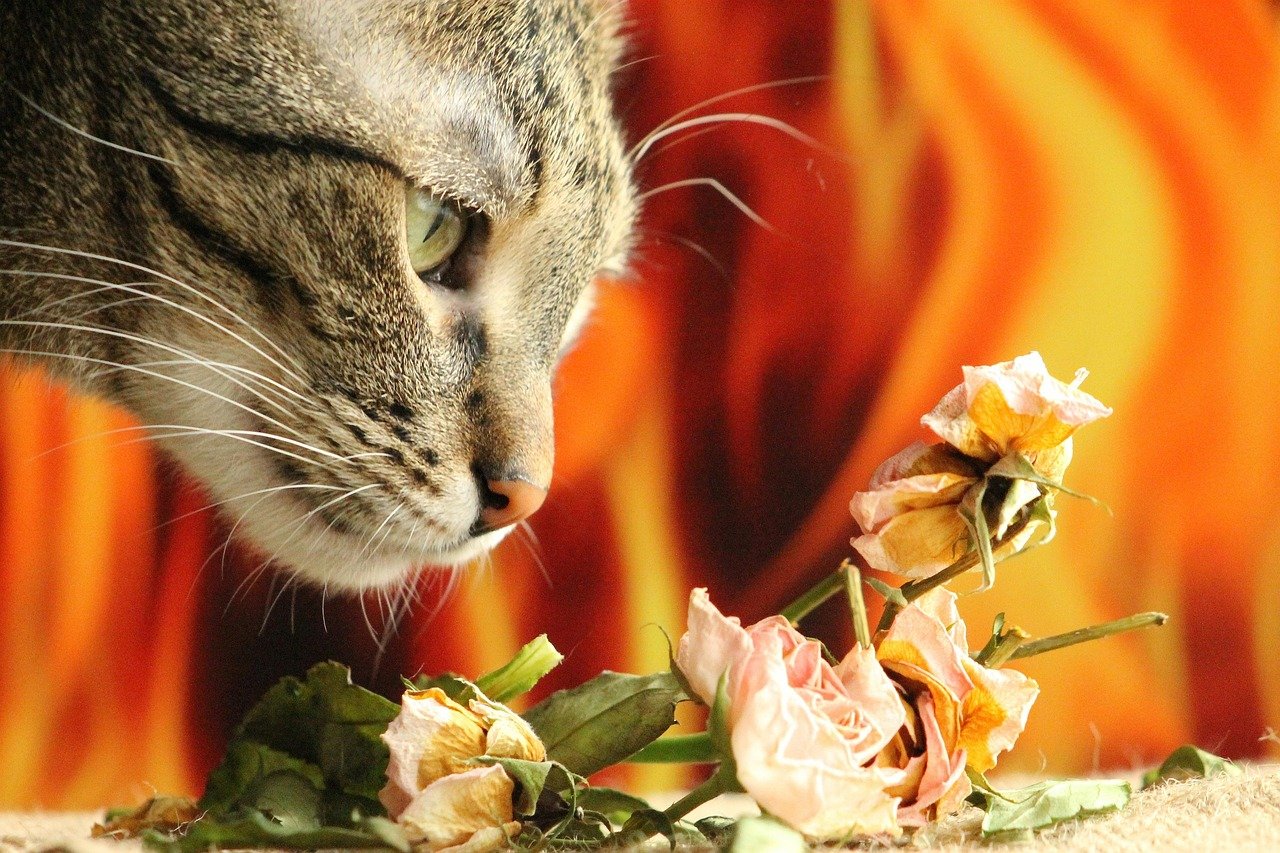
Cats have incredibly sensitive noses, and strong smells can overwhelm them. While we might love the scent of a new candle or fresh flowers, your cat could find these odors distressing. Perfumes, air fresheners, and especially harsh cleaning products can all set off a cat’s alarm bells. You might notice your cat avoiding certain rooms or sneezing more often when new scents are around. The smell of bleach or citrus, in particular, can be especially repulsive to them. Cats use their sense of smell to navigate their world, and when familiar scents are masked or replaced, it can make them feel lost and anxious. Even a change in laundry detergent can leave your cat feeling out of sorts. For a cat, the world is built on scent, and when it changes, everything feels unfamiliar and a little bit scary.
Changes in the Home Environment
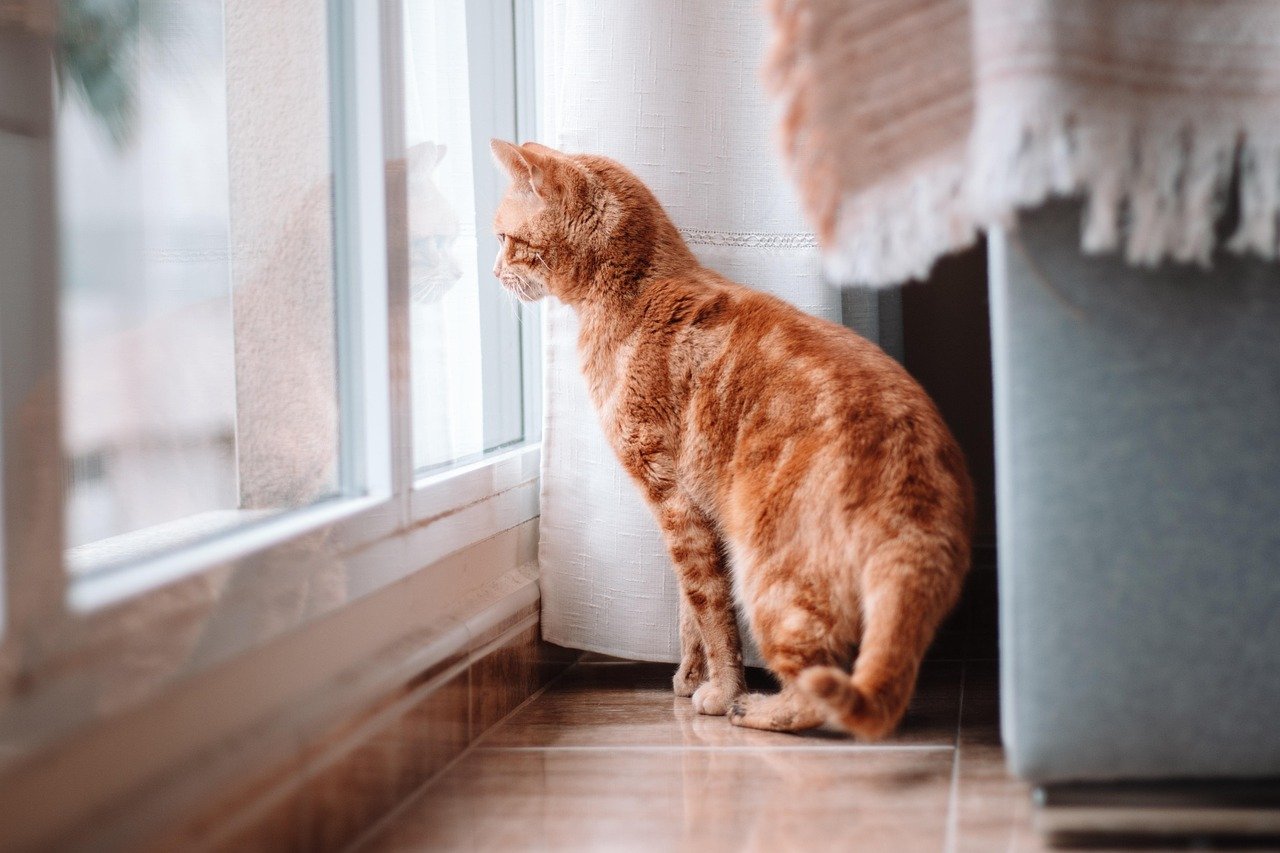
Moving furniture, redecorating, or bringing new items into your home can unsettle your cat. Cats are creatures of habit and prefer their surroundings to stay the same. Even something as simple as moving their favorite chair can throw them off. When their environment changes, cats may act withdrawn, hide more often, or even refuse to eat. If you’ve ever rearranged your living room and watched your cat cautiously circle the couch, you know exactly what this looks like. The fear isn’t just about the change itself, but the uncertainty it brings. Will their favorite sunspot still be there? Is the new plant a hidden danger? For cats, change is often equated with risk, and it takes time for them to adjust and feel safe again.
Sudden Movements and Fast Gestures
Cats are always on high alert for anything that moves quickly. A sudden wave of your hand, a dropped object, or a child running through the room can all trigger your cat’s flight response. Their instincts tell them that anything moving fast might be a predator. Even playful gestures, like wiggling your fingers or tapping on the table, can be misinterpreted as threats. You might notice your cat’s eyes widen and their tail puff up before they bolt away. This sensitivity is part of what makes cats such agile hunters, but it also means they’re easily startled. Living with children or energetic pets can be especially stressful for cats who crave calm and predictability. Even the most confident cat can turn into a skittish bundle of nerves with too many sudden surprises.
Trips to the Veterinarian
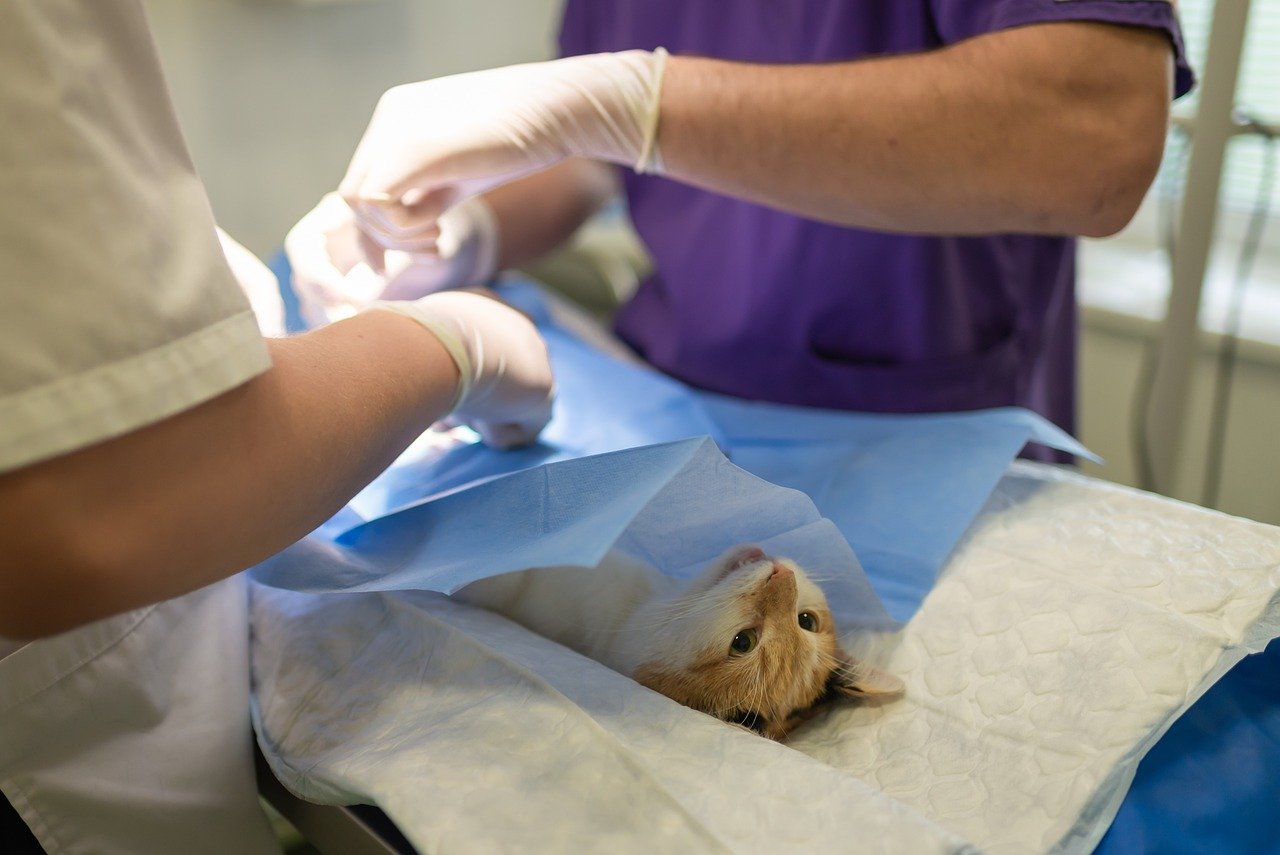
Few things are as terrifying to a cat as a visit to the vet. The unfamiliar smells, loud noises, and rough handling can make even the bravest feline quiver with fear. The carrier itself often becomes a symbol of doom—once it comes out, your cat may vanish without a trace. The car ride adds another layer of stress, with strange motions and sounds that are completely foreign. At the vet’s office, your cat is poked, prodded, and surrounded by other anxious animals. They don’t understand that the visit is for their own good; all they know is that they’re far from home and surrounded by danger. If your cat has ever come home from the vet and hidden for hours, you’re not alone. For many cats, the vet is the scariest place of all.
Being Left Alone for Long Periods
Despite their independent reputation, many cats feel anxious when left alone for too long. Cats form strong bonds with their humans, and sudden solitude can make them feel abandoned and scared. You might notice your cat becoming clingy before you leave, or acting out by scratching furniture or knocking things over. Some cats stop eating or show signs of depression when they’re left alone frequently. The world feels bigger and scarier without their trusted human nearby. Even if you leave plenty of food and toys, the absence of companionship can be deeply unsettling. This fear of being alone is often overlooked, but it’s very real for many cats. They may not show it in obvious ways, but their anxiety can build up quietly over time.
Unknown Objects and Odd Shapes
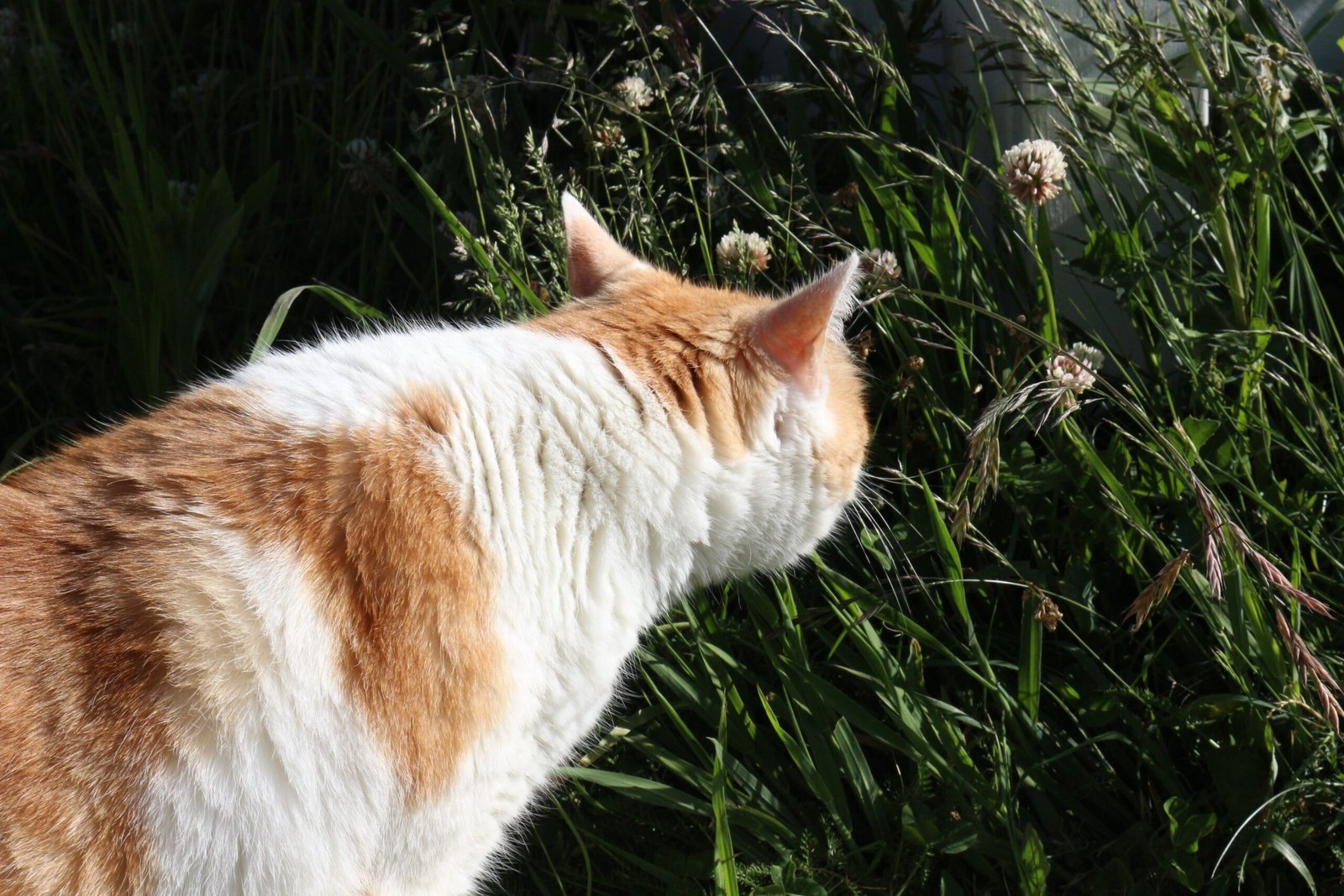
A new piece of furniture, a strange box, or even a bag left on the floor can be enough to spook a cat. Cats are naturally curious, but also deeply cautious. When something unfamiliar appears in their territory, their first reaction is often to approach with extreme caution—or run away altogether. The fear of unknown objects is linked to their survival instincts; anything unfamiliar could be dangerous. If you’ve ever watched your cat stalk a grocery bag for hours before finally sniffing it, you’ve seen this fear in action. Odd shapes, shiny surfaces, or things that make strange noises are especially unsettling. Even holiday decorations can be a source of stress. For a cat, anything out of the ordinary is a potential threat until proven otherwise.
Children’s Play and High-Energy Activity

Kids are wonderful, but their energy can be overwhelming for cats. Loud laughter, running, and rough play are all things that can frighten a sensitive feline. Children may love to chase or pick up cats, but to the cat this feels like being hunted or trapped. The unpredictability of children’s movements and sounds makes it hard for cats to relax. Some cats learn to hide whenever kids are around, while others react with swats or hisses. It’s not that cats don’t like children, but their natural instincts tell them to avoid chaos and seek calm. Teaching kids to respect a cat’s boundaries is essential for a peaceful household. For many cats, a quiet corner away from the action is the ultimate comfort.
Mirrors and Reflections
Believe it or not, some cats are terrified of mirrors and shiny surfaces. When a cat sees their reflection, they might think another animal has invaded their territory. The “stranger” in the mirror moves when they move, making escape feel impossible. Some cats will puff up, hiss, or even try to attack their reflection, while others avoid mirrors altogether. This fear is especially common in kittens, who are still learning about the world. Over time, many cats realize the reflection isn’t a real threat, but some never quite adjust. Shiny appliances, glass doors, and even television screens can all trigger this odd but understandable fear. For a cat, the mysterious twin in the mirror is just one more thing to worry about.
Strong Winds and Drafts
A sudden gust of wind or a cold draft can send a chill down your cat’s spine—literally and figuratively. Cats are sensitive to changes in air pressure and temperature, and a strong breeze can make them feel vulnerable. The movement of curtains, rustling papers, or whistling sounds from windows can be unsettling. Some cats will run and hide at the first sign of a storm, while others crouch low and flatten their ears. The unpredictability of wind makes it hard for cats to feel secure. Even opening a window on a breezy day can change the atmosphere in your home and unsettle your feline friend. For a cat, comfort means consistency, and wind is anything but consistent.
Being Picked Up or Restrained
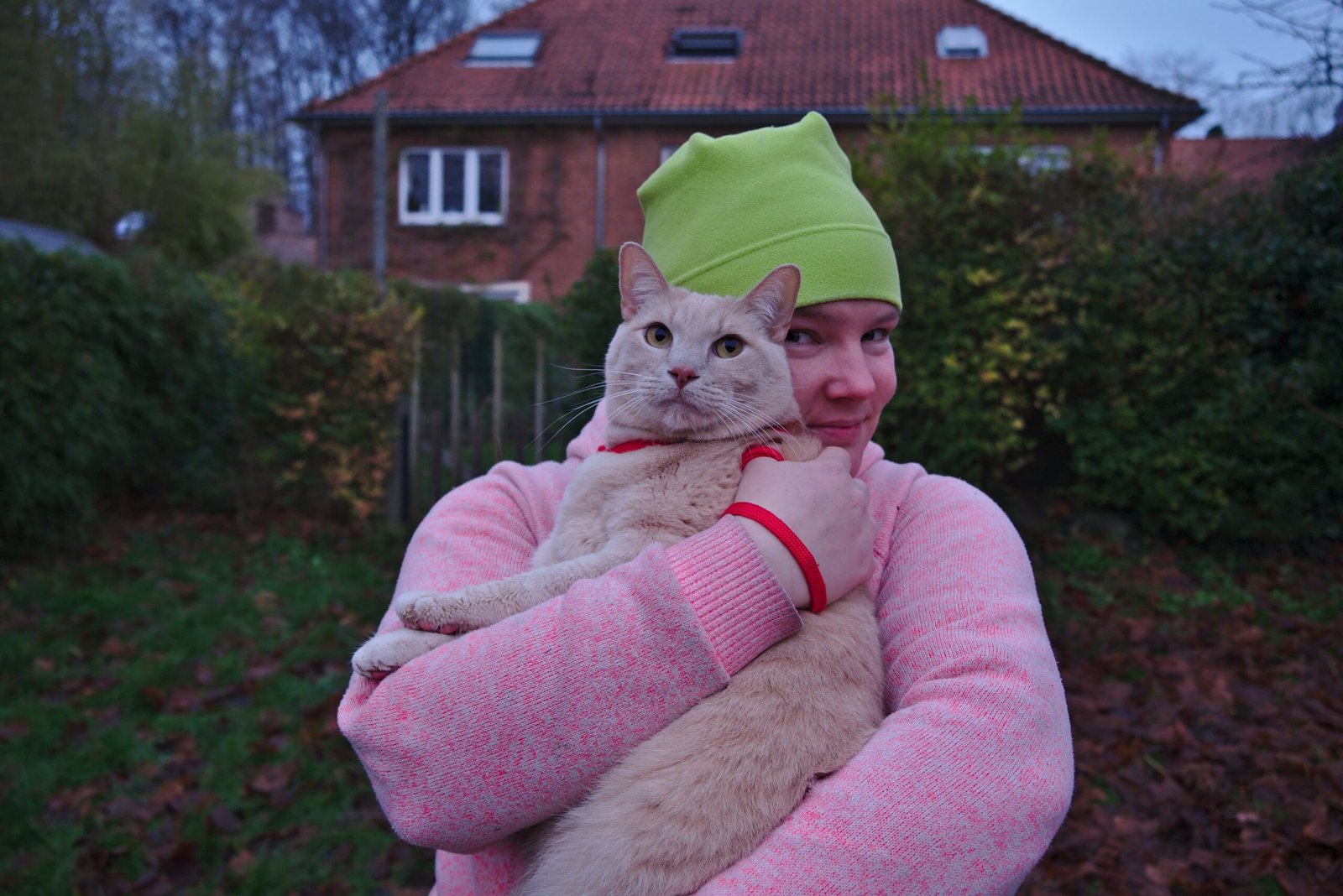
Not every cat enjoys being picked up or held tightly. For some, being lifted off the ground is a deeply unsettling experience. Cats like to feel in control of their movements, and being restrained takes that control away. You might notice your cat stiffen, squirm, or even vocalize when you try to pick them up. This fear is especially pronounced in cats who haven’t been handled much as kittens. Even gentle hugs can be too much for some felines. The instinct to escape is strong, and some cats will go to great lengths to avoid being grabbed. Respecting your cat’s boundaries and letting them come to you can help build trust and reduce fear. For a cat, freedom equals safety.
Sudden Changes in Routine
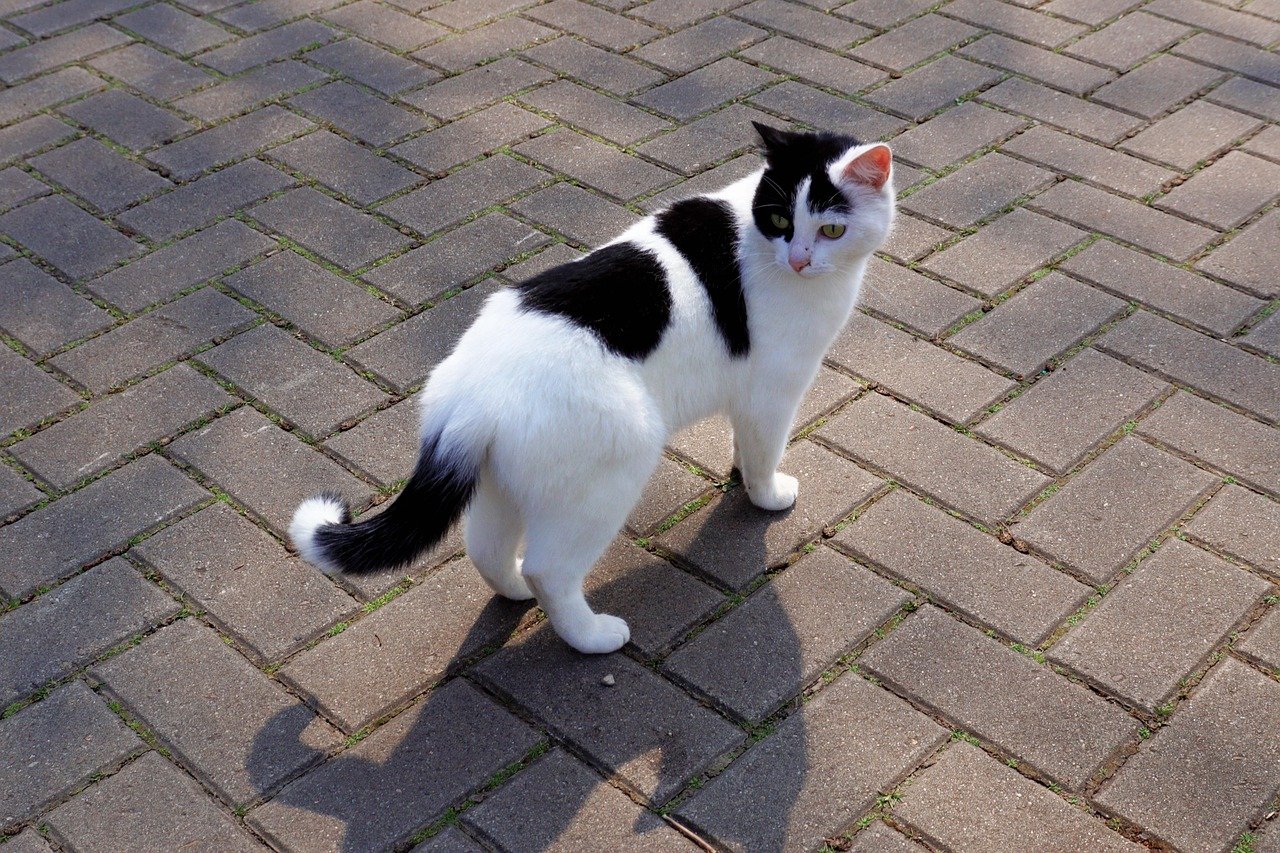
Cats thrive on routine, and sudden changes can throw them into a state of anxiety. Whether it’s a shift in feeding times, a new work schedule, or a change in who’s home during the day, even small disruptions can have a big impact. You might see your cat acting out, hiding more, or becoming vocal when their routine changes. The predictability of daily life is what makes cats feel safe. When that predictability disappears, their world feels uncertain and frightening. Establishing a stable routine and making changes gradually can help your cat feel more secure. For cats, every day should be as predictable as possible—anything else is just too risky.
5 Ways to Calm Your Cat Instantly
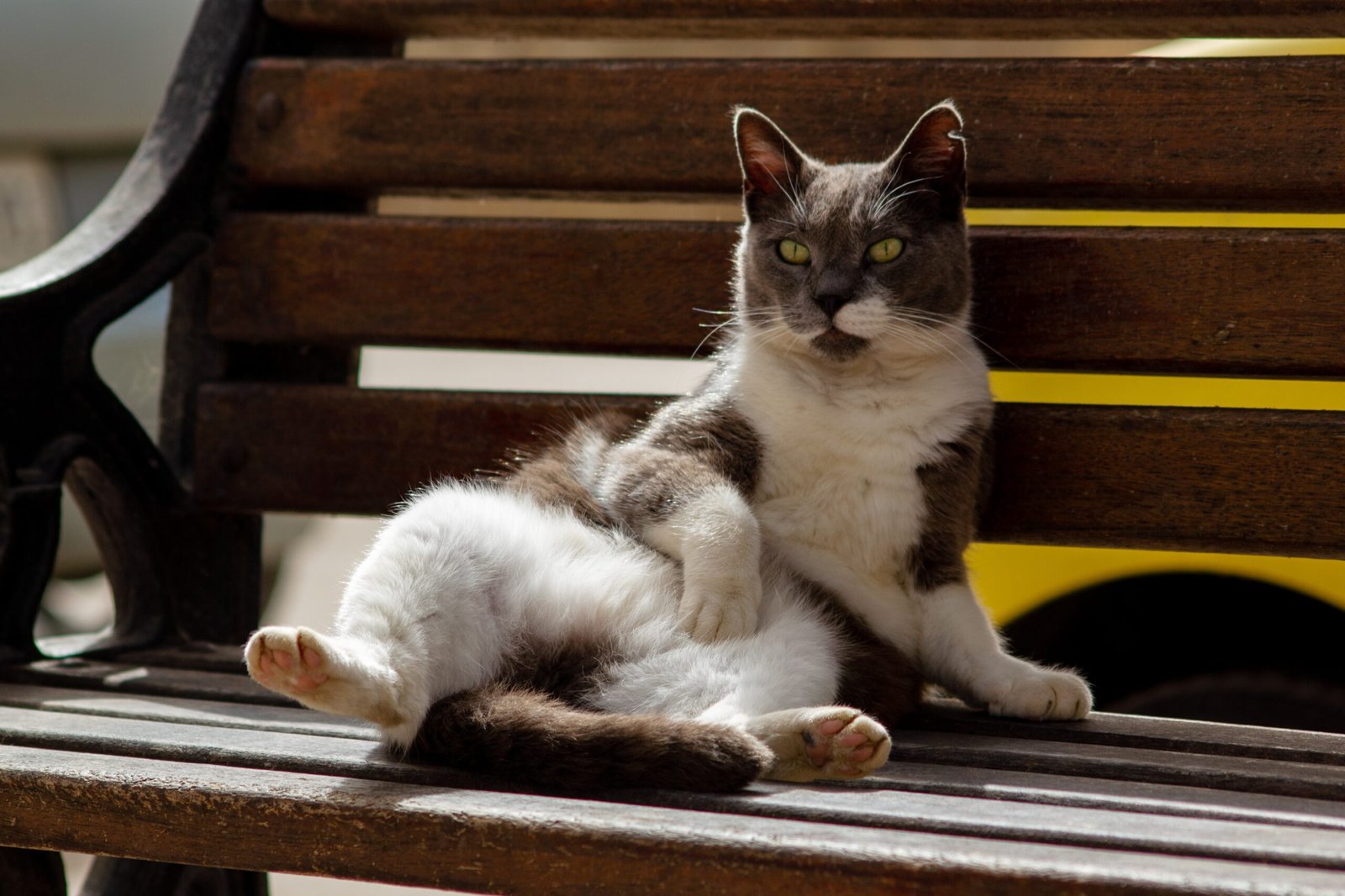
When your cat is scared, seeing them tremble or hide can tug at your heart. Luckily, there are tried-and-true ways to soothe a frightened feline and restore peace to your home. Your voice is a powerful tool. Using a calm, gentle tone and moving slowly can help reassure your cat that there’s no danger. Even sitting quietly nearby can help them relax. Cats love having a place to retreat when things get overwhelming. A cozy box, a covered bed, or even a quiet closet can help your cat feel protected and regain their confidence. Products that mimic natural cat pheromones can create a calming environment. These are especially helpful during stressful events like thunderstorms or vet visits. Sometimes, a fun distraction is all a scared cat needs. Using a favorite toy or a feather wand can redirect their focus and help burn off nervous energy in a positive way. Keeping feeding times, play sessions, and cuddle times consistent can work wonders. Cats crave predictability, and a steady routine helps them feel safe and secure.
Every cat is unique, so you might need to experiment to see what works best for your furry friend. The most important thing is to be patient and let your cat set the pace. Isn’t it amazing how something as simple as a soft voice or a cozy blanket can turn your scaredy-cat into a purring ball of contentment?

Linnea is a born and bred Swede but spends as much time as possible in Cape Town, South Africa. This is mainly due to Cape Town’s extraordinary scenery, wildlife, and atmosphere (in other words, because Cape Town is heaven on earth.) That being said, Sweden’s majestic forests forever hold a special place in her heart. Linnea spends as much time as she can close to the ocean collecting sea shells or in the park admiring puppies.






